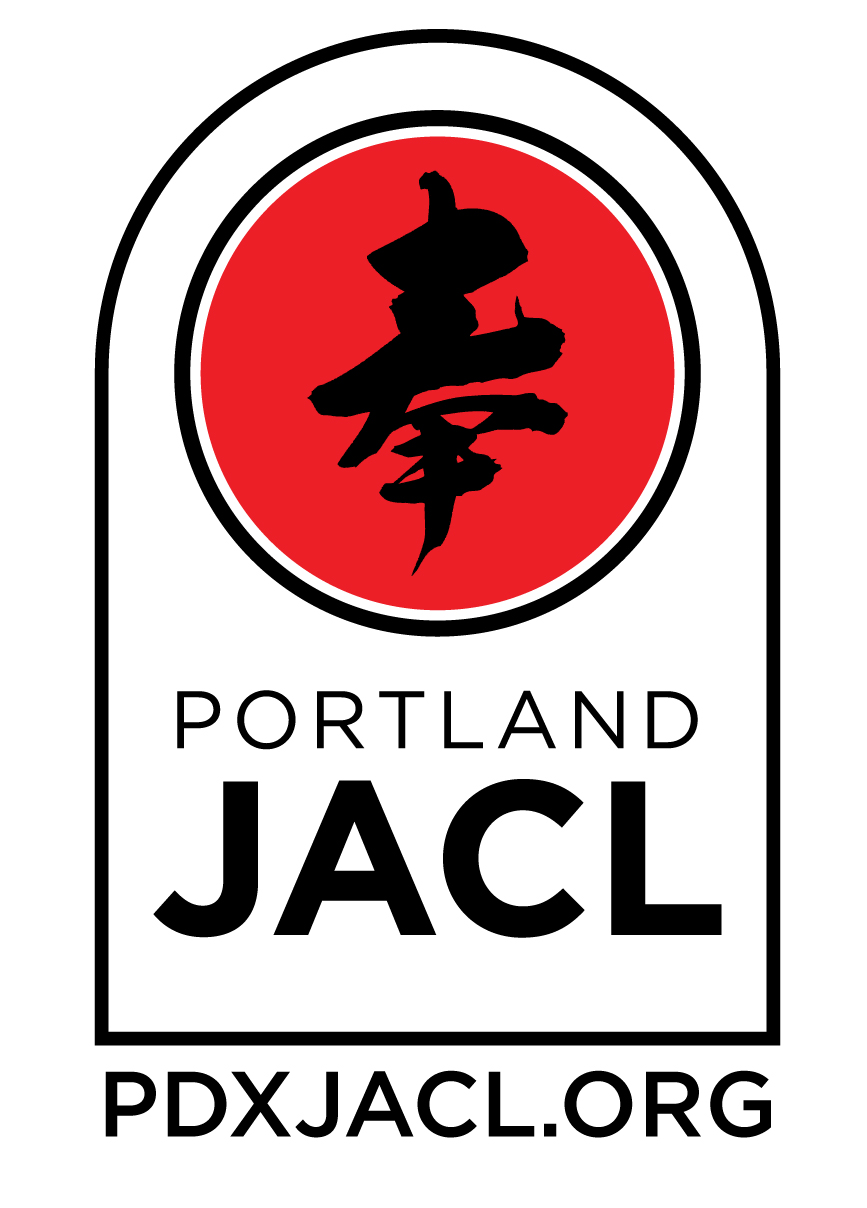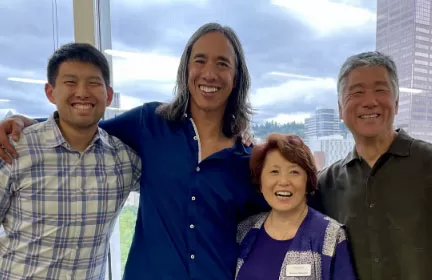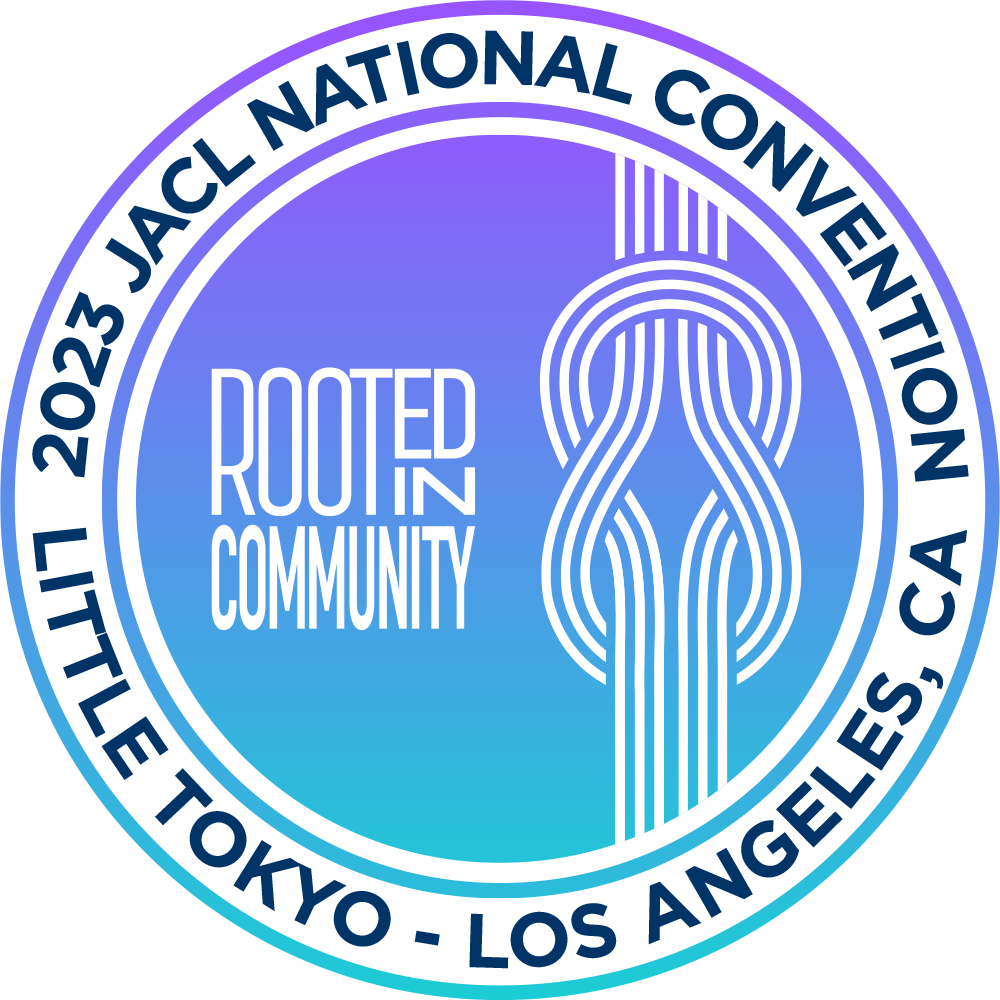By Ken Nitta
Miya Iwataki’s mother, Sadae, was incarcerated at Manzanar during WWII. Her father, Kuwashi, was a staff sergeant in the 442nd (the most decorated Army division of its size and length of service). She was taught cultural values such as the importance of hard work and family. She was taught not to “make waves” and “the nail that sticks out gets hammered down”. For over 40 years there was very little discussion about the incarceration camps because of the pain and shame it caused. At the time, asking for Redress or even bringing up incarceration was controversial. Some thought that a Presidential Commission to study incarceration was called for while others felt that “making waves” and bringing up this painful history was unnecessary.
During the 1960’s, Civil Rights and the Black and Chicano movements led Miya and other young Asians to reflect on the wrongs perpetrated on the Japanese American community. Leaders like Martin Luther King Jr. and Malcolm X inspired Asian Americans to find their voice. During the Vietnam war protests the general chant was “bring our boys home”. Asians broadened those demands with signs of “stop killing Asians”. Her early experience with activism was working with Black and Chicano organizations and building community programs in Los Angeles’ Little Tokyo.
Miya and other Japanese Americans discussed WWII incarceration and the need for an apology and monetary compensation. She especially wanted this for the first generation Issei who “lost the most and worked the hardest.” This prompted the formation of the National Coalition for Redress and Reparations (NCRR) a grassroots organization committed to winning redress/reparations and supporting other communities’ struggles for justice. She was sent to a Gardena, California town hall meeting. Congressman Mervin Dymally, chair of the Congressional Black Caucus was a keynote speaker. During a question and answer session Miya asked Rep. Dymally what his position was on Japanese American Redress. He did not know JAs were fighting for Reparations. He met with Miya and attended NCRR organizing meetings. They learned that as a young man living in the midwest, Dymally thought the incarceration of Japanese Americans was wrong and wrote newspaper articles about this injustice.
Miya and other NCRR members were political novices with no prior legislative or lobbying experience. Rep. Dymally offered to introduce redress legislation in Congress and became a friend and mentor to NCRR. He helped arrange their first lobbying trip to D.C. and hosted a welcome reception to introduce them to Congressional members and staff.
“Winning reparations is part of our legacy, and we’re paying it forward. Reparations for African Americans is the right thing to do, it is long overdue and it is achievable.”
Miya Iwataki
Legislation to form a Presidential Commission on Wartime Relocation and Internment of Civilians (CWRIC) was passed in 1980. NCRR lobbied for hearings in cities with large Japanese American populations, not just Washington D.C. In 1981 Issei and Nisei stood up and broke 40 years of silence as they told their stories during 20 days of hearings in 10 cities. Over 750 witnesses testified, putting a human face on the concentration camp experience for the nation and the world..
Miya recalls that the “testimonies changed my life”. For the first time she and other Sansei (third generation) heard stories of incarceration from Issei and Nisei. She recalls a woman tearfully revealing how she witnessed her brother being shot in the back by a guard; and another woman bitterly testifying that the whole incarceration experience felt like “rape”. “I am still moved to tears” Miya says years later.
In their report, Personal Justice Denied, the CWRIC found there was “no military necessity” for the incarceration camps; they were the result of “race prejudice, war hysteria and a lack of political leadership”. They recommended a Presidential apology, and $20,000 individual compensation, and a Community Education fund. This was put into legislation HR 442 and SB 100, authored and led by Reps. Noman Mineta and Robert Matsui, and Senators Daniel Inouye and Spark Matsunaga respectively. It took six years to get this legislation to a floor vote.
Miya recalls that NCRR kept the momentum going with rallies, issuing press releases and lobbying. In addition the Congressional Black Caucus, the Congressional Hispanic Caucus and Jewish groups including the Anti-Defamation League supported this legislation. Black legislators including Reps. Ron Dellums (D-Oakland) and Julian Dixon (D-Culver City) helped get other California Congressional leaders on board along with local Black legislators like LA City Councilman Robert Farrell.
In 1987, Rep. Norman Mineta alerted NCRR and other groups that the legislation was coming to a floor vote and NCRR “needed to pull out all stops” to lobby Congress before the vote. Miya said they organized a “People’s delegation” of 141 people who “used their own money and vacation time” to travel to Washington DC to “lobby for Justice and Redress”. Rep. Dymallly brought Miya to DC three weeks early to schedule 101 Congressional visits and allowed the NCRR delegates to use his office as a staging area and press center. Many had never previously lobbied or visited Washington DC, and called it “a life-changing experience.”.
The Civil Liberties Act was enacted in 1988 calling for a Presidential apology, and $20,000 compensation for each living incarceree. The following year Rep. John Conyers introduced HR 40 to establish a Black Reparation Commission similar to the CWRIC.
Today, Miya is working with NCRR, Nikkei Progressives and the National Nikkei Reparations Coalition supporting reparations for Black Americans. “Standing together to fight for redress and reparations gave our community the strength to speak out for justice;” and a recognition of our shared history with communities of color. “How could we see this and not recognize the importance of allyship/solidarity with the Black community in fighting for justice?” she says.
“Winning reparations is part of our legacy, and we’re paying it forward. Reparations for African Americans is the right thing to do, it is long overdue and it is achievable.”


